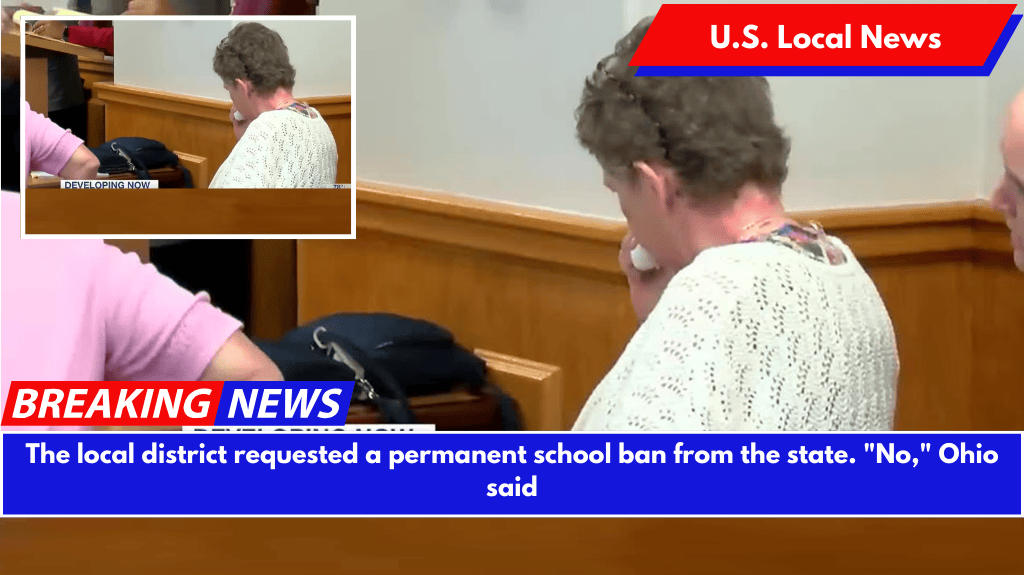Ohio officials have decided that a teen who admitted to beating his teacher will be allowed to continue attending public school, according to our partners at the Cincinnati Enquirer.
In February, the Northwest Local School District Board attempted to prevent one of its students from ever attending public school. Under a rarely used Ohio law known as “permanent exclusion,” a school board can request that the student be barred from attending any public schools in the state.
Following the vote, Northwest Superintendent Darrell Yater told The Enquirer that this was the district’s first attempt at this.
“We do take safety and security very seriously,” he said. “We don’t take something as serious as this lightly.”
Lacey Snoke, chief of communications for the Ohio Department of Education and Workforce, said she was unaware of any other requests for permanent exclusion in the state in the last five years.
Who is this student?
According to court documents, the teen attacked 60-year-old special education teacher Sheri Wooldridge last January, punching her in the head several times. He was fifteen at the time. Wooldridge was hospitalized after suffering a severe brain injury.
Clyde Bennett, the student’s lawyer, stated that the boy inhaled a vape that he believed contained only nicotine but actually contained something stronger.
Prosecutors intended to try the teen as an adult, but a plea agreement was reached. In exchange for a guilty plea, prosecutors agreed to keep the case in juvenile court.
The teen’s attorney and probation officials recommended that he be sent to a locked-down residential facility, but Hamilton County Juvenile Court Judge Stacey DeGraffenreid agreed with prosecutors and sentenced him to a Department of Youth Services juvenile prison in June 2024.
He was released to his mother on January 5 under “very high” supervision, according to court documents.
On February 24, the Northwest Local School District Board of Education unanimously requested that the teen be permanently excluded from public school.
“The pupil’s continued attendance in school may endanger the health and safety of other pupils or school employees,” according to the board.
Last week, the state ruled that the “pupil was ineligible to be permanently expelled because he or she was under the age of 16 at the time of the incident,” Snoke stated.
New law makes expelling kids easier
Shortly after the board voted in February, the teen’s lawyer stated that the board was reacting and that his client had been rehabilitated.
“He is not a threat to any student or employee at any public school,” Bennett informed the media. “It is unfortunate that the school board, which is obligated to act in the best interests of the child, is attempting to deny this young man a critical component of his life and education. “Shame on the board.”
Carla Loon Leader practices education law in Cincinnati. She criticized the permanent exclusion law and other expulsion laws, claiming they contribute to the school-to-prison pipeline.
“It throws the baby out with the bath water,” she told me. “Without an education, what chances do they have in life?”
She also referred to a new Ohio law on expulsions that went into effect on April 9.
Superintendents can suspend students for up to 180 school days under House Bill 206 if they pose a “imminent and severe endangerment” to the health and safety of other students or school employees.
It requires students to undergo an assessment by a psychiatrist or psychologist before returning to class, which may lengthen their expulsion. It also allows the superintendent to extend the expulsion by up to 90 school days, subject to further reassessment and extensions.
The law also allows expelled students to attend online schools or other alternative options.
What’s next
It is unclear what the teen’s situation is at this time. Individual student attendance and discipline are generally not discussed in school districts.
The Enquirer contacted Yater about the state’s decision, but he had not responded by the time of publication.











